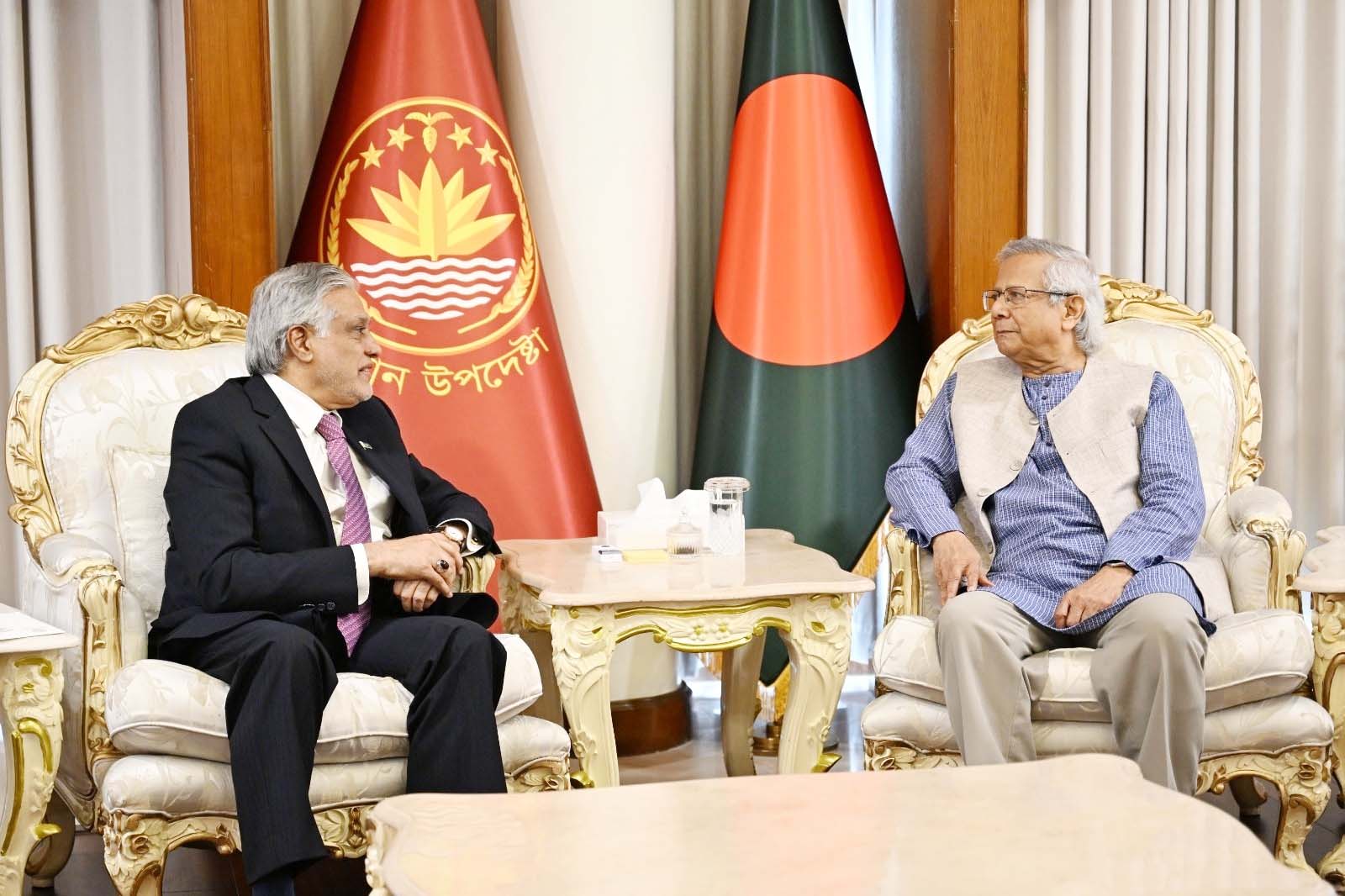
Online Desk: Prospects of reconciliation between Pakistan and Bangladesh got an impetus when Pakistan’s Deputy Prime Minister and Foreign Minister Senator Ishaq Dar visited Dhaka on August 23-24. It was the first visit of a Pakistani foreign minister to Dhaka in 13 years. During the visit, the two sides agreed to strengthen bilateral relations and resolve issues barring those emanating from the civil war in the then East Pakistan from March-December 1971.
Following the monsoon revolution in Bangladesh in August 2024 leading to regime change, a degree of paradigm shift took place in the Pak-BD relations. Yet, despite apparent warmth in their relations, Dhaka and Islamabad failed to initiate a reconciliation process. Bangladesh, reiterated its stance on an apology from Pakistan over the 1971 alleged atrocities; settlement of assets at the time of division; repatriation of standard Pakistanis (called Biharis); and returning the foreign aid that Islamabad received over the November 1970 cyclone.
In response, Pakistan’s foreign minister urged Bangladesh to move on, arguing that the issues raised by Dhaka had been resolved during the tripartite talks involving Bangladesh, India and Pakistan on April 9, 1974. But, caretaker foreign minister of Bangladesh Tauhid Hossain differed with the viewpoint of his Pakistani counterpart and made it clear that resolution of contentious issues remain a major impediment to full normalisation of relations with Islamabad. A similar stance had been adopted by him when Pakistan’s foreign secretary had visited Dhaka a couple of months ago.
Bangladesh’s Caretaker Chief Executive Dr Muhammad Yunus welcomed the visit of Pakistan’s Foreign Minister by stating that “our visions are aligned, and Saarc remains a top priority for both of us
I feel our two economies are complementary. There are many areas where we can work together.” The statement issued from Dhaka after the conclusion of Dar’s visit noted that “the two sides discussed bilateral ties, boosting trade, youth-to-youth exchanges, and revitalizing regional cooperation through Saarc.”
A number of MoUs signed by Pakistan and Bangladesh covered wide-ranging issues like agreement on visa exemption for diplomatic and official passport holders; and cooperation between Foreign Service Academies of the two countries as well as between Associated Press of Pakistan and Bangladesh Sangbad Sangestha, and Institute of Strategies Islamabad and Bangladesh Institute of International and Strategic Studies, Dhaka. Under Pakistan-Bangladesh knowledge corridor, Pakistan announced granting 500 scholarships to Bangladeshi students for pursing higher studies in Pakistan during the next five years.
When Bangladesh and Pakistan differed on resolving contentious issues, it means the two sides have a long way to go in order to take the reconciliation process forward. Bangladesh’s caretaker foreign minister while giving his country’s view on such matters stated, “We acknowledge that the issues of 1971 cannot be solved in a day. We have agreed to continue discussions to the end.” Whereas, Pakistan’s foreign minister differed with his Bangladeshi counterpart, stating that these issues had already been resolved twice — first, when Pakistan formally recognised Bangladesh in 1974; and then, in July 2002 when the then President Pervez Musharraf had visited Dhaka. But the Bangladeshi side is insistent on the apology issue, settlement of assets, repatriation of stranded Pakistanis and refund of foreign assistance given to Pakistan during the November 1970 cyclone. The last demand is relatively new because earlier Dhaka used to mention only the first three as stumbling blocks.





